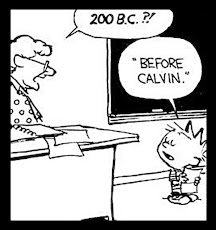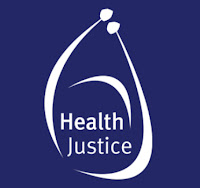Cheryl and I typically fetch our 4 yr old Grandson Calvin from his preschool on Mondays through Thursdays, so the kids can finish their workdays.
I noted the author and book title in my iPhone. The book was released this morning.
 |
| ucheblackstock.com |
Reading it sort of "in reverse" at the outset, following the Intro: Epilogue, Acknowledgements, Chapters 15, 14, 13, 12, 11, and then back to 1 and moving forward... "The Benjamin Button Analytical Reading Method." I do this kind of path sometimes when I am conversant in the topic (retired Medicare analyst), feel like I can trust the author(s), and want to get a quick take on the policy/solutions recommendations. e.g.,
From CHAPTER 15: Actions Speak Louder than Words
To The Nation’s Health-Care Institutions: You have historically, intentionally, and currently proven yourselves untrustworthy to Black communities. You have not treated Black patients with the humanity they deserve. You have excluded community partners in critical decision-making that has affected their neighborhoods and lives. You lack community members on the boards of your institutions. You have not formed meaningful and generative relationships with the community-based organizations that have been embedded in our communities for decades. In your hospital systems, you continue to use race-based tools to calculate, for example, kidney function, and health-care technologies with bias embedded in them, such as pulse oximeters that reinforce and even exacerbate racial health inequities. We need you to do better. We need you to provide structurally competent and culturally centered care to Black communities—care that takes into consideration the social, economic, and political context in which people live. We need you to be intentional about earning the trust of Black communities so that people will be more willing to seek care even before they really need it and have the opportunity to form meaningful and healthy relationships with health-care professionals.
To Medical Schools and Academic Medical Centers: You have one of the most important jobs. You are educating our future physicians, but you are not doing enough. I left NYU and many more will leave academic medical centers because of empty and performative diversity statements; creating chief diversity officer or dean of diversity positions that are set up to fail by providing too little commitment in funding, administrative support, and empowerment; your pushback against feedback from Black students, staff, and faculty; and your upholding and relentless centering of white supremacist cultural values—like individualism, defensiveness, fear of open conflict, overemphasis of the written word, and quantity over quality—that the educator and activist Dr. Tema Jon Okun has written about so eloquently…
Blackstock, Uché. Legacy (pp. 256-257). Penguin Publishing Group. Kindle Edition.
To White Physicians and Health-care Professionals: This is not our struggle to fight alone. Your Black colleagues are exhausted. Your Black patients are dying. The first step toward fixing racial health inequities is for you to acknowledge that systemic racism exists and do your own due diligence to understand how it operates and impacts health outcomes. You must recognize your own individual biases and racism, no matter how altruistic or well intentioned you think you are. You may think you are treating all your patients the same, that you are colorblind, that you are giving everyone the best possible care, but you may be reinforcing systemic inequities in your interactions with Black patients by ignoring how interpersonal and systemic racism impact their health…[pg 259]
To Elected Officials and Leaders: Closing the gap of long-standing racial health inequities will require sustained investment and commitment at all levels of government to dismantle racism and the degree to which it impacts the social determinants of health in Black communities—housing, education, employment, transportation, access to health care and healthy foods, and structural racism within health-care systems…[pg 260]
To White Americans: You have work to do around your kitchen tables. No more hollow promises. No more ignoring our calls for action. And if you consider yourself liberal or a progressive or a supporter of Black Lives Matter, then that requires you to talk with your family, friends, loved ones, and acquaintances about systemic racism and their own biases, harmful decisions, and silence. Participating in the latest social media hashtag trend does not mean you have reckoned with anything. Our collective grief and the generational and systemic issues we face did not magically appear—white supremacy and privilege have manifested it all. We are living in two Americas because of systemic racism. I’m still angry that it took the savage murder of a Black man, George Floyd, by a white police officer for some white Americans to see the horror of racism. He and so many others of us should be alive today, and it should never have taken that heinous incident to wake you up… [pg 262]
To The United States: However tragic, depressing, and preventable this current moment is, I also think it’s a moment in which we are called upon to think about transformative change more broadly for Black Americans, including how we can and must provide more equitable and quality health care.
If arguably the wealthiest, most well-resourced country in the world cannot take care of its own people, especially those who are crumbling under the weight of oppression, then I am deeply concerned about where we go from here.
I hope that this book is an urgent reminder of the work we have left to do. It takes all of us, from each of our seats on the arc of justice, to make a real difference in people’s lives. Beyond rhetoric, we need everyone on board to dismantle systemic racism and white supremacy—these ills are greater than any one of us. [pp 263-4]
My first reaction was "oh, boy, Tucker Carlson will have an aneurism!"
My next thought was "Y'all gotta hook up with Mark Cuban. He is smacking the absolute shit outa the whiny-assed racist anti-DEI MAGA crowd these days."
BTW: See my 2015 riff on "#BlackDocsMatter" (please forgive the link rot).
"George Floyd?" With ya there, this ole Whitey.
Much more to come. This had not been on my radar for today.
THURSDAY UPDATE
Yeah. I am reminded of some 15 yr-old musings of mine.
THE U.S. "HEALTH CARE" "SYSTEM"?I took a shot at "Single Payer" in 1994 via my first grad school paper—on "Argument Analysis & Evaluation." [pdf]
I will by no means be the first to note that our medical industry is not really a "system," nor is it predominantly about "health care." It is more aptly described as a patchwork post hoc disease and injury management and remediation enterprise, one that is more or less "systematic" in any true sense only at the clinical level. Beyond that it comprises a confounding perplex of endlessly contending for-profit and not-for-profit entities acting far too often at ruinously expensive cross-purposes.
Another quick personal story:
During my first tenure (early 1990's) serving as an analyst for the Nevada/Utah Medicare Peer Review Agency (they're now called "QIO's" - Quality Improvement Organizations), in addition to our core Medicare oversight work, we had a number of small sidebar contracts, one of which involved ongoing analytical assessments of the Clark County Nevada self-funded employee health plan. One morning I accompanied my Sup, our Senior Analyst Dr. Moore, to a regular meeting of the plan's Executive Committee, wherein we would report on our latest plan utilization/outcomes evaluation.
A portion of the morning -- perhaps a half-hour, IIRC -- was always devoted to hearing claims denials appeals brought by Clark County employees. This day, two appeals were heard: one regarding an outpatient medical claim, the other concerning a dental encounter. The total sum at issue was about $350. Both appeals were denied, thereby "saving" the plan this nominal amount.
Bored by this administrative tedium, as I sat at the conference table, I did a quick, rough estimate back-of-the-envelope calculation. About a dozen executive/professional people consumed a half hour adjudicating these disputes, or, equivalently, 6 FTE hours. Assume a plausible blended G&A-multiplied cost estimate of the total compensation time for all these folks, plus all of the clerical/administrative time consumed in the processing (and subsequently denying) of these minor claims from the moment of their filing to this very hour.
Clark County easily spent well in excess of an additional $1,000 to "save" $350 at the expense of these two hapless employees, by my reckoning.
Similar scenarios -- public and private -- surely play out every day within our "health care system." Clark County would have been way ahead to have simply vetted the initial claims for fraud and then paid them! (This is one observation implicitly at the heart of the "Universal Coverage / Single Payer" model.)
But, as my Senior Medical Director was fond of pointing out, "every misspent dollar in our health care system goes into someone's paycheck."
Argument synopsis:
Notwithstanding public misgivings about making significant public policy driven changes in the U.S.health care industry, there is extensive and persuasive empirical evidence of costly inadequacies in the system-such as lack of access/coverage uneven levels of quality of service and outcomes, market-driven rather clinical priorities, waste and duplication, etc., that can best be corrected by a unified approach to improvement driven by a scientific focus on quality issues (broadly defined) rather than those of short-term cost-control, competition, and piecemeal regulatory strategies and tactics.A single-payer health care system reformed by implementation of the ten principles detailed herein would at once extend medical access to all, reduce costs, improve clinical outcomes of the sick and injured, and elevate the overall health status of the nation, resulting in win-win consequences for providers and citizens alike.
30 years later, the problems largely remain, or have worsened in some ways—particularly with respect to racial inequities.
ERRATUM FROM 10 YRS AGO
And, fast forward.
A BOBBYG RANT
ON THE CANARD OF "RACE"
A DAY AT THE RACESFrom Chapter 8, about 30 minutes of dispositive whup-ass. I love that book. The ongoing simplistic conflation of culturally/ socially/ environmentally evolved ("adaptive") phenotype with biochemical DNA genotype is one of our most severe chronic cognitive (and political) maladies.
LET’S MOVE ON TO the final tenet of pseudoscientific racism:One can predict average human behavioral and cognitive traits based on these broad racial categories. Racial traits are heritable and immutable, and so will be deeply resistant to any social intervention, thereby excusing ongoing oppression and denial of educational and economic opportunity to broadly defined “racial” groups.If, as is widely held by racists, genetic differences account for a large share of the remaining IQ test score gap between blacks and whites in the United States, then there must be average differences in the prevalence of gene variants, starting with the thousand or so intelligence-related genes that have been revealed by the large GWAS investigations. Furthermore, those average racial differences must be sufficient to account for a large part of the remaining nine-point gap in IQ test score.
I can’t say this loudly enough: There is no evidence for significant average differences in intelligence-related genes between “races.” Not between self-identified whites and blacks in the United States, nor between any pair of self-defined racial groups. Not only that, there is no evidence for racial group differences in genes that have been linked to any behavioral or cognitive trait. Not aggression. Not ADHD. Not extraversion. Not depression. Nada, niente, nichts, bupkis.
Science is not about what could happen; it’s about what we can prove did happen. To assert that genetic variants underlying “racial” differences in cognitive or behavioral traits must exist because of some just-so story about continent-wide selective pressure, without providing the genetic evidence, is nonsense. It is the very definition of nonscientific, self-serving racial bigotry.
Linden, David. Unique (pp. 246-247). Basic Books. Kindle Edition.
More to come, including equally-deserved props for twin sister Oni and her important work.
A humbling family.
__________







No comments:
Post a Comment